Five Years Later ~ The Pandemic and Social/Emotional Impact on Our Kids
This is more of a reflection piece today💖
When I meet a new family now, I have a new set of questions that I ask:
❓What grade was your child in during the pandemic?
❓How did they spend their time from 2020 to 2022?
Those years are still relevant. They give me a fuller picture of a child’s social and emotional development—and help me figure out if there are pieces we need to revisit or strengthen.
➡️🔗www.NorikoAbenojar.com to view all past newsletters
➡️🔗Subscribe to the newsletter to receive email notification each time
➡️BIG NEW announcement below ~ I'm very excited about this!
➡️Keep reading even more for: NORIKO'S NOTES: sharing my life's simple joys💜

Oh, the COVID years...How I never wanted to meet you but so much I learned from you.
For some kids, those years were calmer, quieter. I was concerned about these kids getting 'too cozy' at home, away from social interactions. I was glad for them to have some relief, but I worried it would be a huge ask for them to come out and check in with the world again when this was over.
For others, they craved the social opportunities that suddenly got taken away. They were frustrated, confused, irritable, often without being able to express into words.
Both sets of kids hugely missed out on opportunities to work through things like developing and strengthening friendship skills, handling social challenges, or negotiate group play, and many more. The abrupt change in the child's routine was so difficult. The world didn't know what to expect beyond those 'first two weeks off for precaution' so the child sure didn't know what to expect either. We all did what we needed to, in order to get through it.
What I’ve Noticed in My Work with Families
5 years later, I feel that many kids have had the opportunity to gain those skills they may have missed or have begun that process.
One thing I am seeing now, however, is that kids who were probably already more anxious about social situations seem to be the ones still carrying the biggest impact.
I see it coming out in general anxiety and feelings of uncertainty in social situations; more cautious or hesitant to take a risk socially. Also, I am seeing more specific worries about getting sick or how we respond when people around them are sick.
💬 Some children get overwhelmed easily in groups
💬 Some avoid social settings altogether
💬 Others struggle with the back-and-forth of conversation or play
💬 And many are still working on emotional flexibility during conflict
This is not to say this would not have been a concern without the pandemic; it is really hard to tease apart, but these are just my observations.
The Role of Screens and Digital Play
During the pandemic, screens were essential. They helped kids go to school, stay connected, and have something fun to do when the world felt uncertain. Parents needed to work at home and this was often the only way that could happen. As a parent of two young teens at that time, I too, was just trying to get through the day to day.
From a social and emotional perspective, screen play is very limiting. In game play, there is usually a set of rules that are pre-set and non-negotiable. If the player doesn't follow the rules, they either lose 'health' or 'a life' and that round ends. There is no opportunity to talk things out, share your perspective in order to negotiate and make group decisions in a way that in-person play offers. The kids lacked the opportunity to have messy, unexpected, ever changing relationships that supported important social growth. The struggles and the need for real-life repairs were not available...like when pretend play got too chaotic, when board games ended in a disagreement, and when shared moments ended with ill-feelings without the ability to hit an electronic “reset” button to make it all go away.
Also, if the player 'died', the player often had 2 different reactions.
1) No big deal reaction - just start the game over...over and over and over. Not a lot of perseverance needed in this type of set up. 'I can work through hard things' energy wasn't required when they can just reset and start again. I often saw kids stop a game before they even died so they can avoid that step and just start over from the beginning.
or
2) Huge deal reaction - the child would have such a hard time emotionally handling the loss or disappointment, to a point where they were throwing controllers, yelling, 'rage quitting'. Often, the only people who saw this reaction would be their family members, not their peers. In in-person peer interactions, there are natural reflection moments because the child might realize other kids don't like huge explosive reactions or they realize they will miss out on the next game if they are away throwing and kicking things. Self reflection is not easy, but socially speaking, it is a factor. Having parents or siblings say they don't like the child's reaction is not the same as their peers saying/showing that they don't like the reaction.
*Some may say that certain games are very interactive and foster a lot of team play - My response to that is: many kids were not developmentally ready to handle these types of games that trigger such big emotions. You might know how I feel about these games for our kids here...I'm not going to single it out but it stars with F, has a T and N in the middle and ends with E 😂.
One Moment That Stuck With Me
Many of you have heard me talk about my sister who is an amazing middle school teacher. She deeply cares about the social and emotional well-being of her students. For a couple of years after schools went back in person, I remember hearing her say...
“We need a playground at the middle school.”
Her students were older, but socially, they hadn’t had the practice they needed in their upper elementary school years.
❓How did the pandemic years affect your child’s development—socially, emotionally, or otherwise?
❓Are there any lingering effects you’re noticing now?
NORIKO'S NOTES: sharing my life's simple joys💜
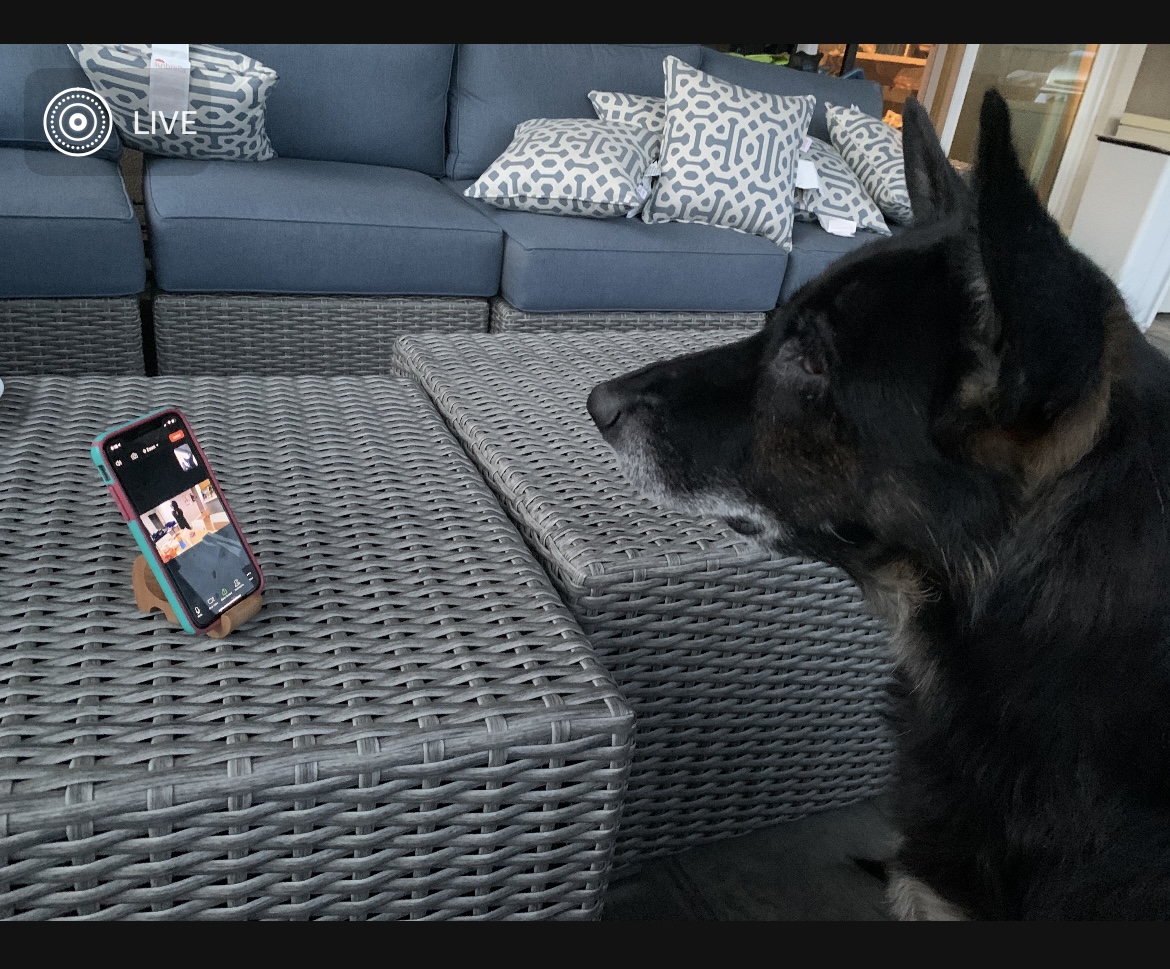
This is Roxie trying to learn zoom also. May 2020.
*warning, it's a long one this time! 😹
Last week, I got an email that my annual subscription to zoom had renewed. That stopped me in my tracks. It wasn't the cost, it wasn't the way the email was written; it was the fact that 5 years ago, like many of you, I had to learn how to use this new thing called zoom. Just seeing that renewal email brought back so many memories and emotions for me. I remember thinking to myself, 'I do social skills, how in the world am I supposed to do that virtually and what is this thing called zoom. I've only used skype like 5 years ago'.
For the first week in shelter in place, I mostly tried not to think about it. I had a lot going on personally in my health and my family at that time and I think I spent the whole week in my pajamas trying to wrap my head around this. At some point, I set a start date and emailed all of my SCLC families that I would be resuming sessions online soon. *actually, I just looked back at my emails-looks like we resumed sessions online on 3/26/2020! As that date got closer, the truth is, I hadn't even signed up for zoom. I finally signed up on 3/23/2020 ~ not my usual style to have such little time to prepare to work with my precious families...but that was the best I could do.
So we got started. I spent hours and hours looking online and youtube for games I can play with kids online or activities that would be engaging enough to keep their attention. Was it the best quality? No. Did I give it my best go? Definitely yes. Depending on the age and the group dynamic, we did different activities; some just chatted, in others we played D&D, escape rooms, hotwheel racing, wheel of fortune games, chess, jackbox games, what's in the box guessing games, picturnary, etc etc etc. I had never spent so many hours prepping for sessions each week. I knew this was one of the very limited social time our kids were getting and I needed it to be solid.
Over time, we all got into a nice groove; the groups started to have their favorite activities, kids learned how to better navigate zoom, they figured out yelling actually causes zoom to cut out the volume so it was counterproductive, and turn taking became essential when talking on zoom...and we made it through.
So today, my simple joy is actually quite complex. It is gratitude. Thank you for sticking it out with me during the pandemic! A small number of families were not able to continue because the virtual set up just wasn't working for their kiddo, which was 100% understandable. Many even took a chance and started with me during the pandemic. In looking back at my March 2020 emails, I was reminded of the many amazing emails of support, willingness to try any format that I came up with, and offers to continue payment even if I needed to take a break, to make sure my business could stay afloat. I do think I gained a lot of valuable professional skills during the pandemic that I hope to keep paying forward to new and old families.
I am forever grateful to all of you.
Thank you for letting me share my simple (complex) joy💜 .
Gratefully yours,
Noriko
ANNOUNCEMENTS:
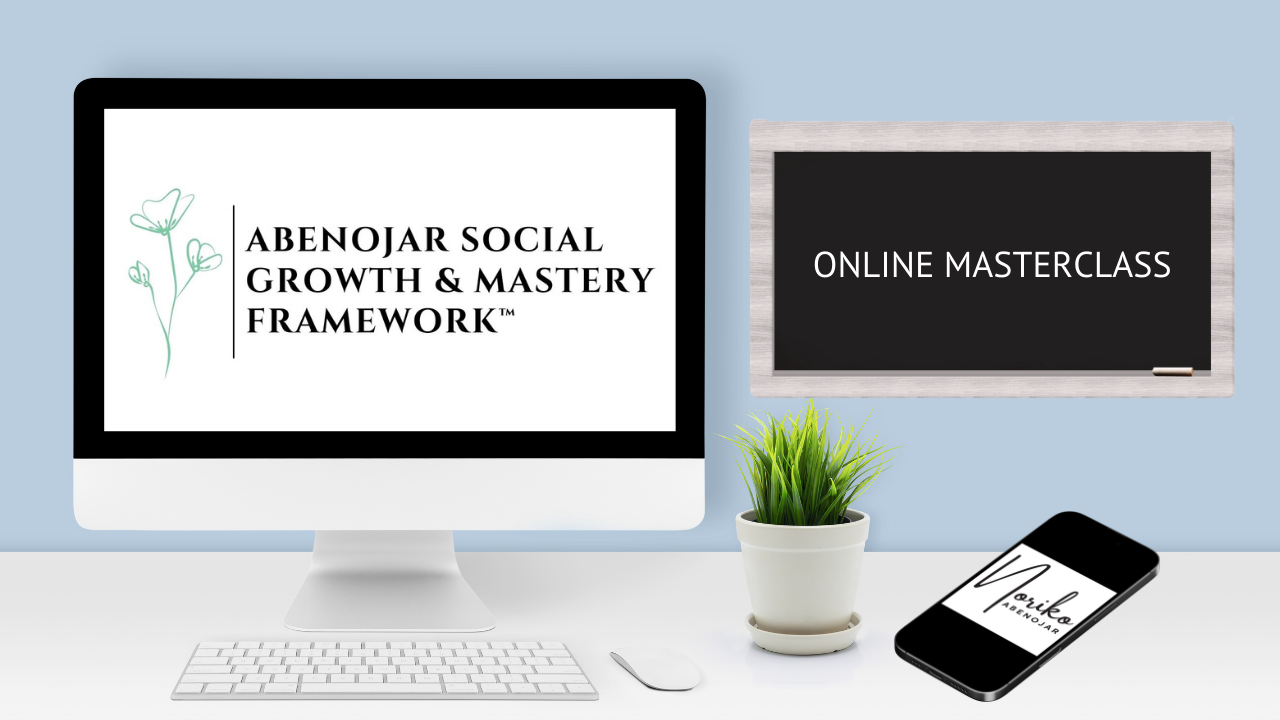
The Abenojar Social Growth & Mastery Framework™ Masterclass is almost actually here!
💥Free Masterclass
💥Recommended for everyone!
💥You, as a Parenting REdefined subscriber, will get early access plus limited-time to download the full 32-page workbook (normally $14) for free.
💥Tell your friends to subscribe so they too can get the workbook for free!
💥 It is just in the last stage of getting uploaded to the platform, so it is just around the corner.
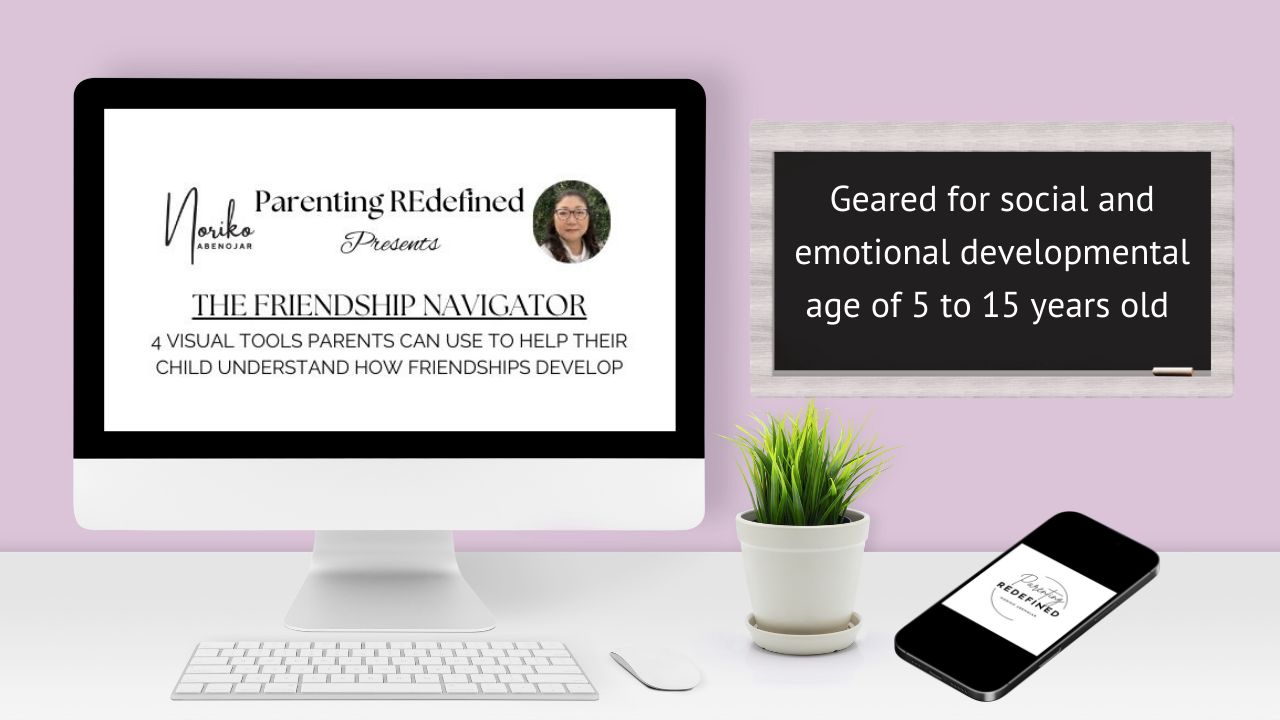
Online Masterclass
REGISTRATION COMING SOON!
FRIENDSHIP NAVIGATOR - 4 Visual Tools Parents Can Use to Help Their Child Understand How Friendships Develop
YES! NOTIFY ME WHEN REGISTRATION IS OPEN
Please Help Spread the Word!
The more awareness we bring to the importance of social skills development, the more schools and workplaces will recognize the importance of inclusivity and the need for meaningful social support.
Please share this link: Parenting REdefined Newsletter (www.NorikoAbenojar.com/subscribe) to friends, families, teachers, or other professionals - encourage them to subscribe so that they don't miss announcements and new newsletters.
Noriko Abenojar, MSW PPS
Parenting REdefined
www.NorikoAbenojar.com
www.SocialAndCognitiveLearningCenter.com
Instagram: @NorikoAbenojar
Facebook: Parenting REdefined by Noriko Abenojar MSW PPS
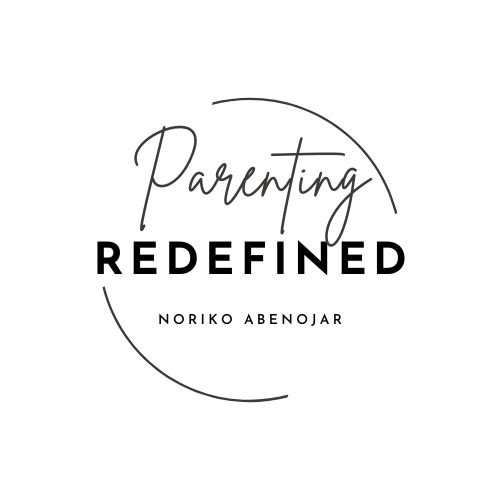
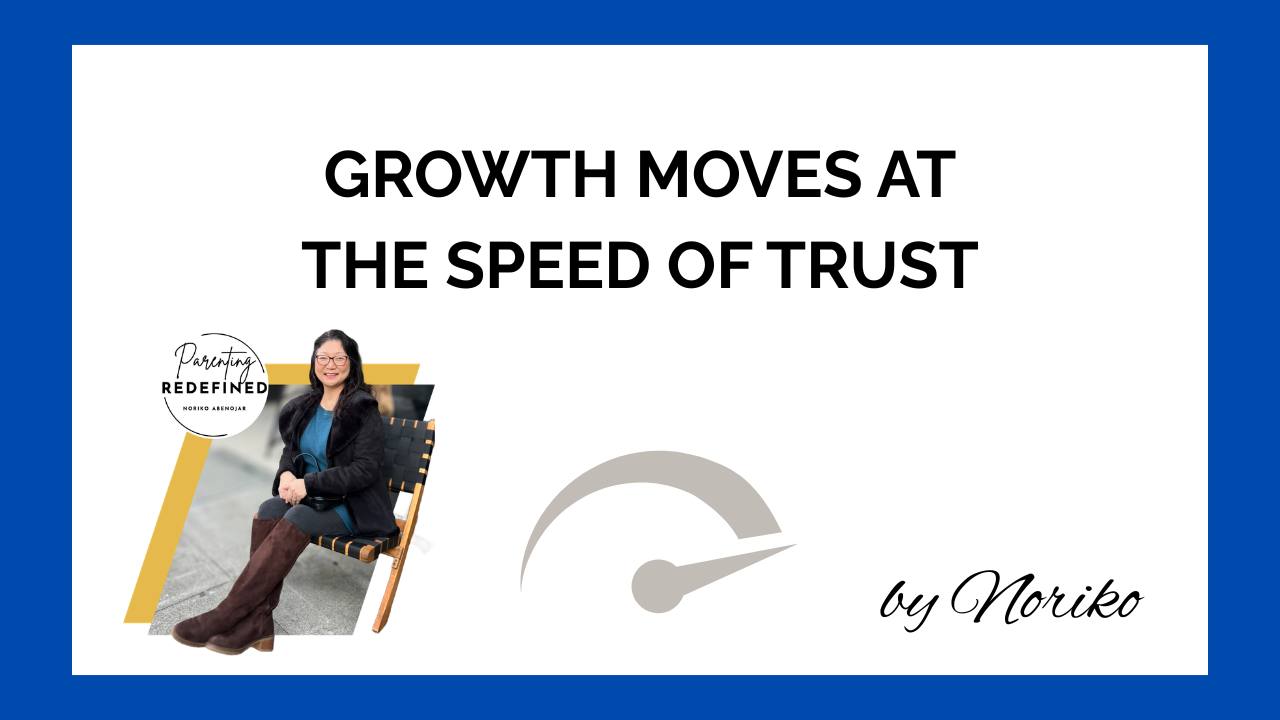
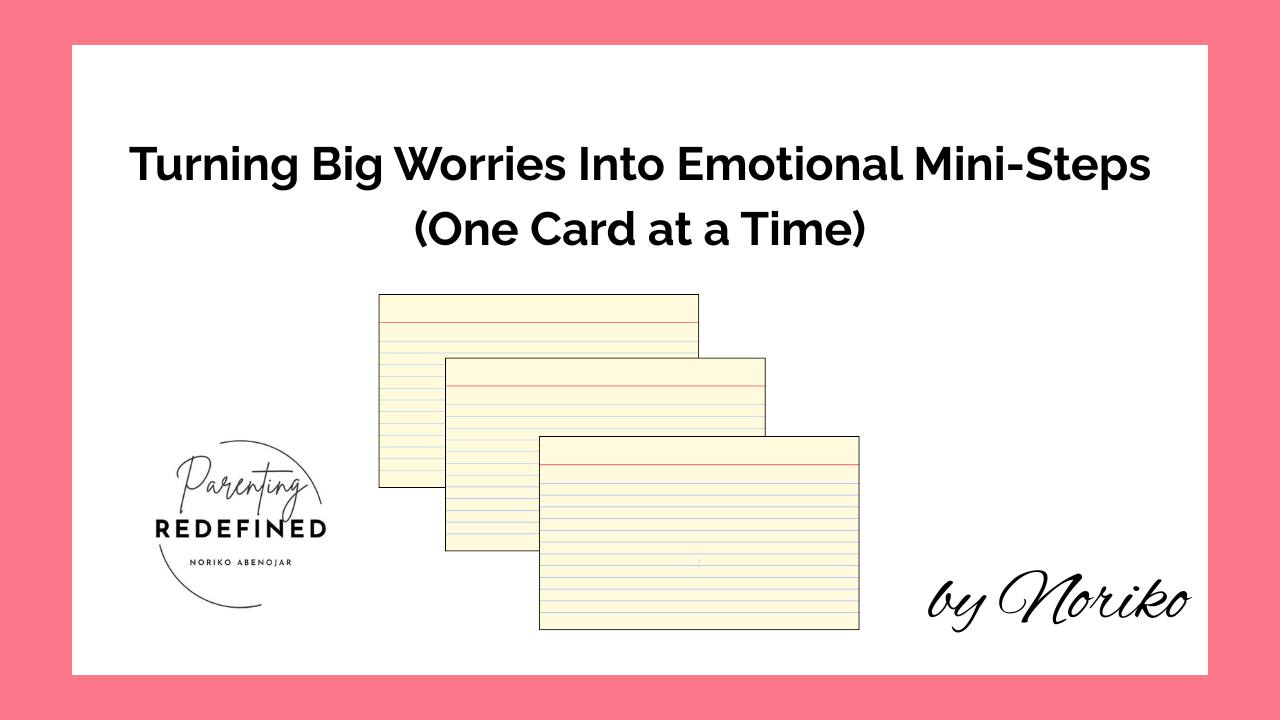
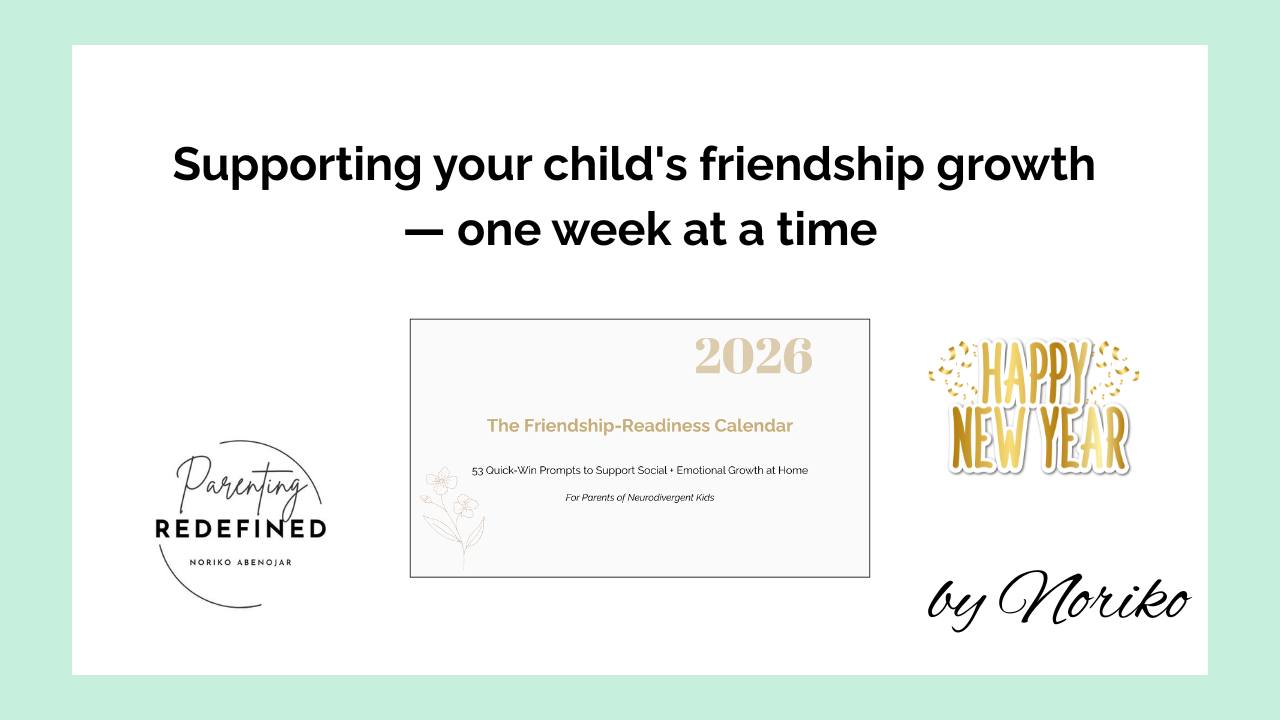
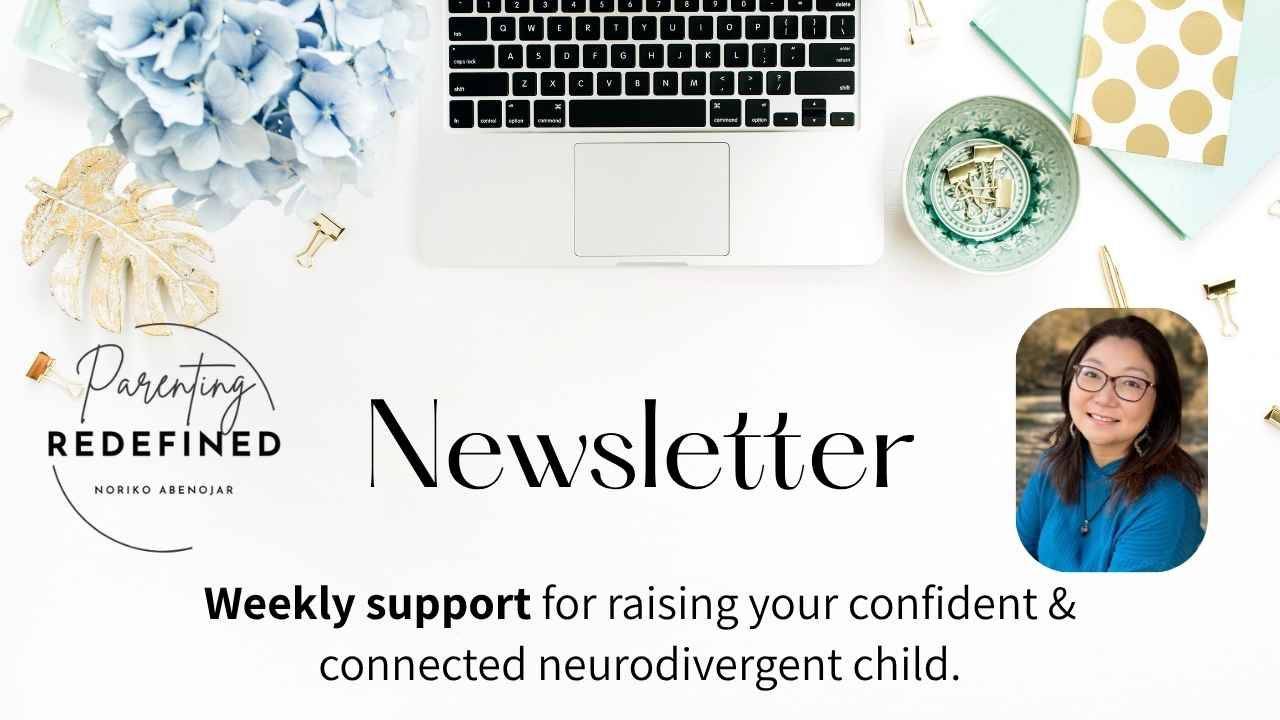

Responses